MercoPress. South Atlantic News Agency
Tag: Inflation
-
Saturday, November 6th 2021 - 09:59 UTC
Brazil cuts down import tariffs to fight growing inflation
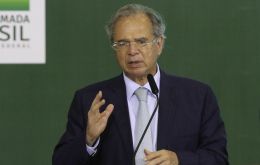
In a move aimed at curbing inflation, Brazil Friday announced a 10% reduction of import tariffs on 87% of goods and services until December 31, 2022. Economy Minister Paulo Guedes now expects the other Mercosur countries to do the same.
-
Friday, November 5th 2021 - 09:15 UTC
More Brazilians in debt amid growing inflation
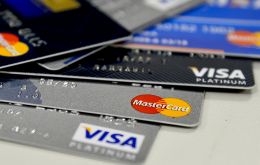
Brazil's economic crisis has led to an unprecedented number of households being unable to repey their debts, it was reported Thursday.
-
Thursday, November 4th 2021 - 09:33 UTC
Federal Reserve begins gradual monthly tapering of stimulus this month
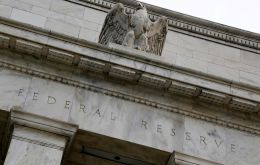
Finally, following a two-day meeting, it's official: the US Federal Reserve announced on Wednesday it will begin tapering stimulus to the economy this month but also leaving the door open for possible changes if there are shifts in the scenario because of the pandemic. Likewise, inflation was described as “transitory” because of supply chain issues in the post-pandemic recovery.
-
Friday, October 29th 2021 - 08:45 UTC
Argentina: Paraguayan guaraní becomes hard currency in the absence of US dollar bills
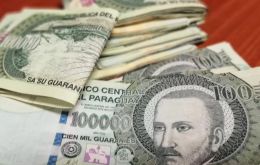
The demand for Paraguayan guaranís in the Argentine province of Misiones has been developed as desperate locals are unable to find US dollar bills with which to protect their savings from rampant devaluation and growing inflation, it was reported.
-
Thursday, October 28th 2021 - 09:55 UTC
Brazil's Central Bank increases Selic rate above expectations
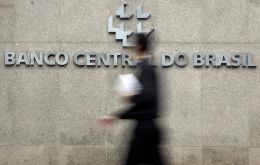
Brazil's Central Bank (BCB) Monetary Policy Committee (Copom) decided once again Wednesday to increase the basic Selic interest rate from 6.25% to 7.75% annually, in what turned out to be the sharpest rise since December 2002, it was announced.
-
Wednesday, October 20th 2021 - 09:20 UTC
Argentine food prices grow below overall inflation
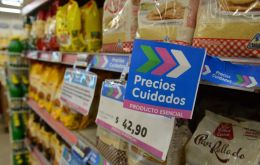
Argentina's basic food basket rose 3.2% in September, according to data released Tuesday by the National Institute of Statistics and Census (Indec).
-
Friday, October 15th 2021 - 09:30 UTC
Argentina's Domestic Trade Secretary announces price freezing agreement to be policed by social and political organizations
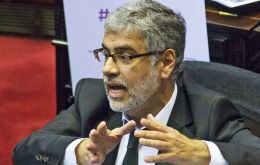
Argentina's newly-appointed Domestic Trade Secretary Roberto Feletti Thursday announced authorities would closely monitor compliance on the part of retailers regarding 1,247 food and other basic items made available at affordable prices until January 7, 2022.
-
Thursday, October 14th 2021 - 09:21 UTC
Chilean central bank surprises markets, increases basic rate from 1,5% to 2,75%

Given the latest spike of inflation in Chile which jumped 1,2% in September, the central bank council surprised markets by increasing the basic monetary lending rate 125 points, that is from 1,5% to 2,75%, the highest since 2001. The five-member Council decision was unanimous.
-
Thursday, October 14th 2021 - 08:59 UTC
Central Bank of Brazil takes action to reverse real shrinking

Brazil's Central Bank Wednesday took an active role in the currency exchange market and sold US $ 1 billion to avoid a devaluation of the real, which has already lost a third of its value against the US dollar in 2021 alone
-
Monday, October 11th 2021 - 09:55 UTC
Bolsonaro banned from Brazilian football stadium for not being vaxxed

Brazilian President Jair Bolsonaro was not allowed to enter a football stadium to watch Gremio's match against Santos because he was not vaccinated against COVID-19.
